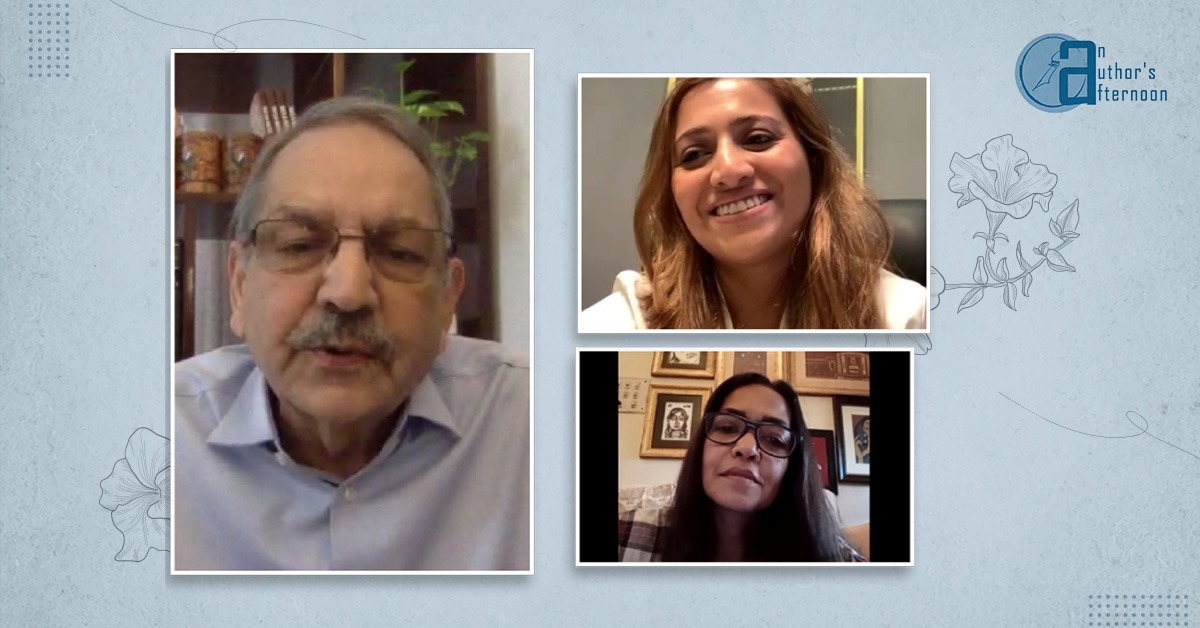
The guest for the 85 th Author’s Afternoon was Karnal Singh. Karnal Singh, a 1984-batch IPS officer and an engineer from the Delhi College of Engineering (DCE) and the Indian Institute of Technology (IIT) Kanpur, has over 34 years of experience in the investigation of corruption, terrorism, money laundering and criminal cases. In the Delhi Police Special Cell, he spearheaded the investigation of the 2008 Delhi blast cases, which led to the Batla House encounter. He is a recipient of the President’s Police Medal for Distinguished Service and Police Medal for Meritorious Service.
In a conversation with him was Ehsaas Woman of Mumbai, Ketki Bhatia. Welcoming them to the conversation was Esha Dutta from Ehsaas brigade of Kolkata.
Singh’s book ‘Batla House’ is centred around the controversial and famous encounter that took place in Delhi at the Batla House. The book starts from the first bomb blast that took place on 13 th September 2008. The bomb blasts were simultaneous in many places at the same time and were done by a terrorist group called the Indian Mujahidin. The terrorist group had done serial bomb blasts in over 14 places in Delhi and the police had been trying to find them since a long time. When they got the news of the group hiding in Batla House they went there to investigate where the shootings happened. Media spun the news saying that it was a fake encounter and that it was just done under the pressure. The media and the people put out rumours saying that the police officer that died was killed by his own team, however, when the forensic report came it was clear that the police officer had been killed by the terrorist group, the dead terrorists also had residue of gun powder on them that indicated that the shots had been fired by them. The police officer that had died was one of the most decorated police officer, Mohan Chand Sharma, it was his discovery that had led the team to Batla House. He had in his lifetime neutralised around 35 terrorists, received numerous medals and was also awarded the Ashok Chakra for bravery in the battle field after he had died. He was knowledge of both the technical and the human skills.
He said that the media is like the 4 th pillar of democracy and has the responsibility to make sure that they do not put out fake news out in the public domain. When the police investigate and presents the facts, it does in front of the court where the defence also has the right to fight and present the facts to the court, a judiciary body that is independent of the other pillars of the democracy. Whereas the media just presents the facts that they think is correct and frames a side, the other side has no right to defend themselves. The party that is declared guilty by the media become guilty in the eyes of the people and has no chance of redemption. The media must understand that they have a greater responsibility to refrain from showing the news that can leak sensitive information about the case and hamper the investigation. Media is like the 4 th pillar of democracy and has the power to sway the people in whatever side that they want to. The investigation teams must also be trained in what information should be shared and what should not be, as that can make or break the case.
Singh then said that sometimes the clues can be found easily whereas many times when dealing with terrorists finding clues that connect and make sense are difficult. The investigation agencies have to look for clues both on the scene and off the scene. The area has to be extensively swept for any evidence and the dump data, like the phones connected to the nearby tower, same phone present at different locations of crime. The data has to be looked through carefully as the evidence is hidden in them to crack the case.
When talked about the investigation that followed the encounter Singh mentioned that the team that has done the encounter is never a part of the investigation team, however since there is not one agency for looking into the encounters, the media and the people still claim that the teams are the same and hide facts that do not show the police in good light.
The two roles that Singh played were both of important as one dealt with the physical and internal security of the country whereas the other with the economy and social security of the country. Both these roles are fulfilling in their own way and give an immense sense of satisfaction knowing that one is doing something that will help the country be a better place in all aspects.
The conversation ended with Esha thanking Singh and Bhatia on an insightful conversation on the encounter that happened in Batla House and how the media had twisted the facts that were presented.






